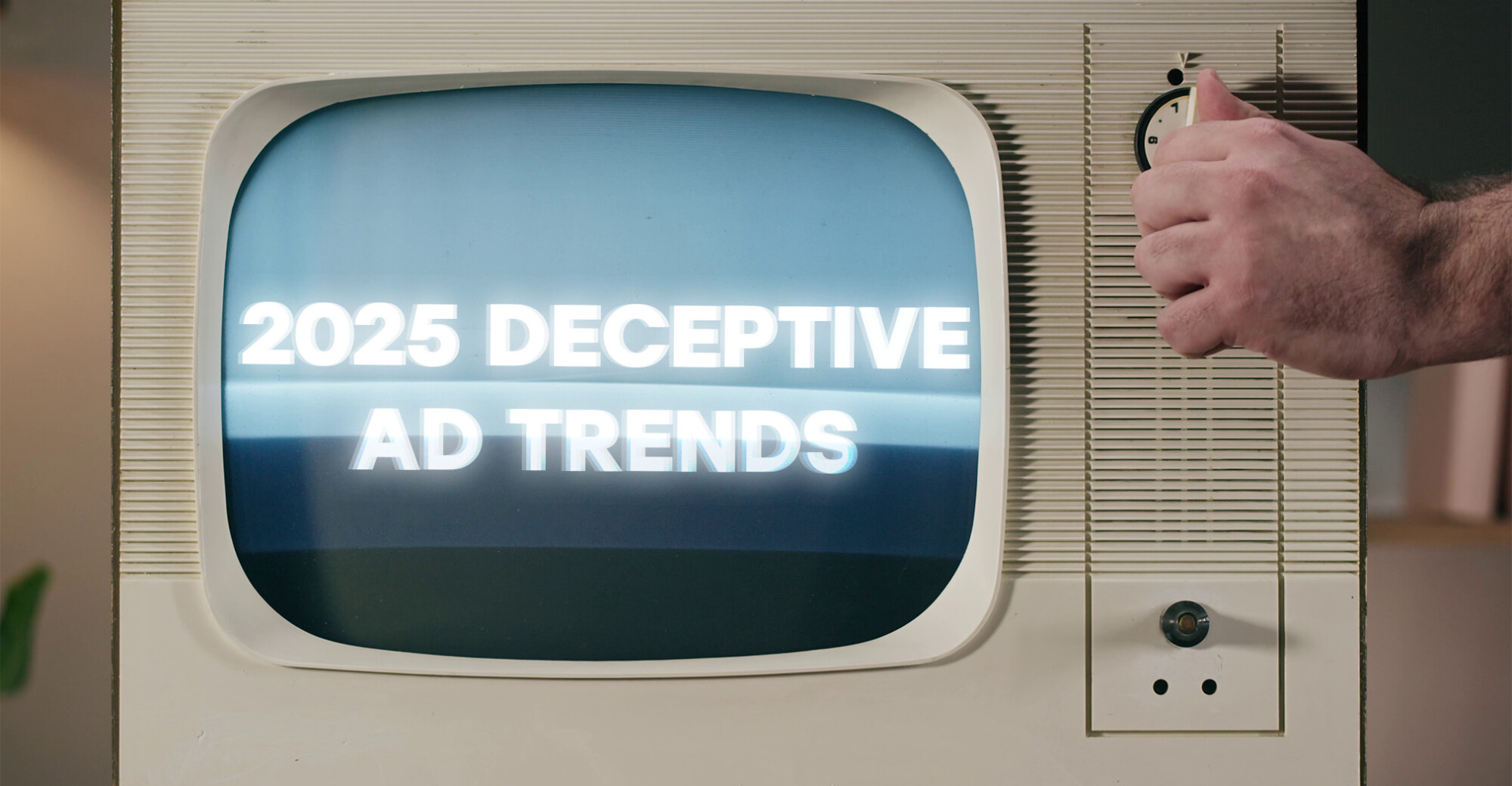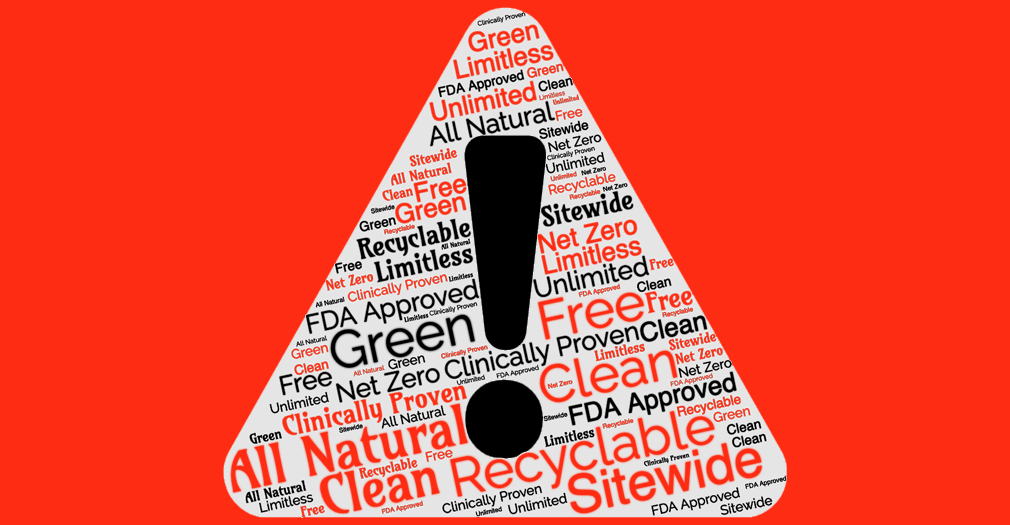
2025 Deceptive Ad Trends
A closer look at what we’ll be monitoring in the new year.
Consumers have much to watch out for in terms of deceptive advertising trends in 2024. Here are five TINA.org will be keeping an eye on this year.
Hormonal/menopause claims
One way we predict deceptive ad trends for the new year is to look at what consumers were searching the previous year. And in 2023, our most popular ad alert based on page views was about a supplement marketed to balance hormones as users “go through Perimenopause, Menopause, PCOS and their irritating symptoms such as cramps, hot flashes and mood swings.” Pursuant to FDA law, no company can market supplements claiming to balance hormones or to reduce, improve, help or assist with abnormal conditions associated with menopause without going through the agency’s rigorous review process to prove that the products are safe and effective for their intended use. That was a process that TINA.org found the supplement maker had not undertaken. Expect to see more of these types of hormonal/menopause claims in 2024.
Free food for life?
Under federal law, companies that advertise “free” offers must clearly and conspicuously disclose at the outset all the terms, conditions and obligations of the offer “so as to leave no reasonable probability that the terms of the offer might be misunderstood.” It doesn’t matter what the offer is for – a free book, a free toy or – and this might be most enticing offer of them all – free food for life. At the end of last year, TINA.org alerted readers to a meat and seafood delivery service advertising “Free Chicken Wings for Life.” In reality, the wings were neither free nor did they last for life, a double whammy. The actual offer, only available to new customers with an autorenewing subscription purchase, only lasted a year and at any point the company could substitute the chicken wings for anything it wanted. Yet these material terms were relegated to the fine print of the ad where consumers were not likely to see them. In other words, consumers viewing the ad could reasonably understand “Free Chicken Wings for Life” to mean free chicken wings. For life. The company behind the purported complimentary poultry, Good Chop, is owned by HelloFresh, whose deceptive marketing of “free meals,” among other things, prompted TINA.org to file a complaint with regulators in 2022 and which is currently running ads on social media for its namesake meal kit delivery service with the tagline “Free Bacon for Life” when the “free” bacon is only available with a subscription.
Artificial intelligence
Regulators whose job it is to protect consumers have grown increasingly concerned about artificial intelligence. “AI has the potential to ‘turbocharge’ schemes and deceptive practices,” the FTC said in November. In fact, we’ve already seen how a global platform like Roblox can use AI bots to manipulate and mislead consumers, including millions of children, into thinking they are interacting with real people. Fake reviews are another area of concern as AI makes it easier for disreputable businesses to create persuasive reviews that sound like they were written by actual users. In October, the FTC hosted a workshop on generative AI and content creation that made clear there is no AI exemption to the laws that are already in place. “All of the laws that already prohibit unfair methods of competition or collusion or discrimination or deception, all of those laws still entirely apply,” said FTC Chair Lina Khan.
FDA-approved and FDA-cleared claims
Companies selling health-related products often love to tout their products as “FDA approved” or “FDA cleared.” But sometimes these claims can be misleading, if not outright false. For example, despite what some supplement companies would want you to believe, the FDA does not approve supplements or manufacturing facilities. The agency approves, among other products, drugs, biological products like vaccines, and high-risk medical devices, but only after a company has sufficiently demonstrated that its product is safe and effective for its intended use. How companies can legally market products (specifically certain kinds of medical devices) as “FDA cleared” is a completely different process. In order to gain FDA clearance, a company only needs to show that its device is “substantially equivalent” to one that the FDA has already given clearance. We’ve likened the FDA clearance process to a giant game of dominoes where if one domino falls, they all go down. However, the FDA does set boundaries for the types of ad claims that can be made for the product once it’s been cleared by the FDA. And some device makers go beyond the bounds of their FDA clearance in their deceptive FDA marketing.
Sustainable aviation fuels
According to Reuters, sustainable aviation fuels, or SAFs, make up just 0.1 percent of airlines’ fuel worldwide. But that has not stopped airlines that primarily use fossil fuels to power their planes from touting their limited use of SAFs in order to appeal to eco-conscious consumers. The list is growing and includes names such as United Airlines, Royal Dutch Airlines and Lufthansa, which removed the sentence “Fly more sustainably” from one of its Google ads in response to a recent inquiry.
See our previous deceptive ad trends posts here.
A closer look at what we’ll be monitoring in the new year.
Here were some of the worst ads TINA.org investigated this year.
These definitions are a joke.


